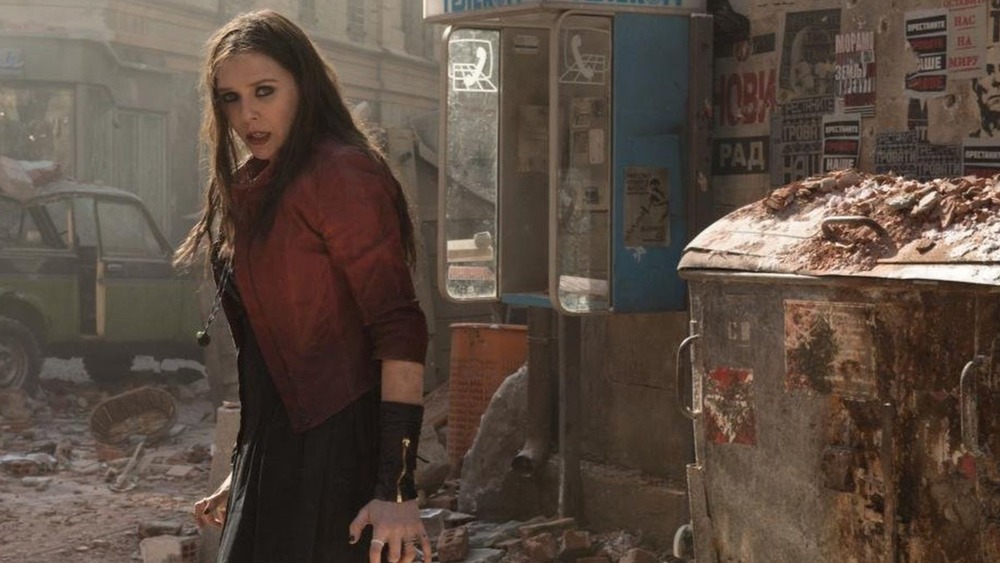What You Didn't Notice About Wanda's Accent In WandaVision Episode 3
Contains spoilers for WandaVision
Marvel Studios' WandaVision has wasted no time in taking over the entertainment world following its Disney+ premiere on January 15. The two inaugural episodes introduce viewers to the unsettling, classic-television-like reality that Wanda "Scarlet Witch" Maximoff (Elizabeth Olsen) and her synthezoid husband Vision (Paul Bettany) now reside. The first installment sets the titular heroes against a 1950s backdrop, with the second jumping ahead to the '60s, providing plenty of tacky flair along the way to sell the dated presentation. Even the program's leads take extra precautions to fit in as members of these eras long gone.
While Vision often hides his true form, makes small talk with the neighbors, and works 9 to 5 for his expanding family without objection, Wanda has appeared especially paranoid about blending in. In episode 1, she goes above and beyond to impress Vision's boss, Mr. Hart (Fred Melamed), and his wife (Debra Jo Rupp) with a home-cooked dinner. Then, in the second, she does everything in her power to dazzle the neighborhood planning committee leader Dottie (Emma Caulfield). However, for as hard as she tries, in the '70s-themed third episode of WandaVision, Wanda's façade finally shows some cracks that tie back to her Sokovian roots.
Wanda's Sokovian accent makes a brief return
The third WandaVision installment marks the long-awaited arrival of Wanda and Vision's twins, Billy and Tommy. After a sped-up pregnancy and telepathically destructive labor, the boys come out healthy as can be, and their mother couldn't be happier. As Wanda looks at her offspring resting in their crib, she tells the mysterious Geraldine (Teyonah Parris) about her childhood, recalling that she herself is a twin. She name-drops her brother, Pietro (portrayed by Aaron Taylor-Johnson in Avengers: Age of Ultron), and slips into a slight accent that might across off as odd to new viewers.
However, longtime fans of the Marvel Cinematic Universe will recognize this moment of altered pronunciation as a callback to Wanda's youth. Age of Ultron was her first non-post-credits scene MCU appearance, in which she leans heavily into her Sokovian origins. As a result, Wanda uses the vocal inflection of her fictional homeland throughout the movie. In subsequent appearances, Wanda actress Elizabeth Olsen dropped the accent from her performance entirely — instead speaking in an American accent, much to the confusion of MCU die-hards.
As it turns out, there's an in-universe explanation for this change. In a recent interview with MovieWeb, Olsen explained, "[Wanda's accent] lightened up when she started living in the States, and in WandaVision, she is playing the role of being in an American sitcom, and so it's not gone. It is absolutely still there."
Additionally, the actress touched on how the accent came to be and why it had to sound different from a proposed Russian one. "We wanted to make sure it didn't sound Russian because Black Widow speaks Russian," she revealed, mentioning that they aimed for a more Slovakian sound in settling in Wanda's accent. "We created these sound changes that worked for Aaron's British accent going to Slovakia basically and my American accent so that we sounded related."
It might not be the most intriguing of WandaVision's many Easter eggs, but it certainly brings Wanda Maximoff's story full circle. After all, had she not departed her homeland of Sokovia, it's unlikely she'd be wherever she is at this point in the MCU timeline.

